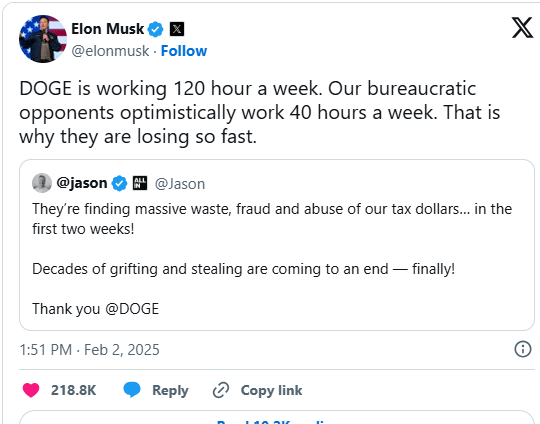

Bhubaneswar: When ILO statistics shows more than half of Indian work force working for 49 hrs per week, a fiery debate on longer working hours was stoked by Infosys founder Narayan Murthy, and was fanned to flames by comments of L& T Chairman S Subhrahmanyam.
The debate hit US shores when Tesla owner Elon Musk tweeted on X, “Very few in the bureaucracy actually work the weekend, so it's like the opposing team just leaves the field for 2 days!
And then, the X owner posted, “DOGE is working 120 hour a week. Our (US) bureaucratic opponents optimistically work for 40 hours a week. That is why they are losing so fast.”

Amidst the debate for longer working hours per week in India by top corporate czars, the Economic Survey 2024-25 tabled in Parliament by Finance Minister Nirmala Sitharaman had spoken very significant.
WHAT ECONOMIC SURVEY SAID?
The tone and tenor of the Survey tabled in Parliament had a clear suggestion of changing of the “Inflexible Labour Laws’ and batted for vesting the power with the companies.
What looks big here has been that, presently, State governments decide the working hours of an employee working in corporate sector, the Survey has clearly advoctaed the same power being given to companies. If this happens, then L&T chairman without any fuss would have implemented 90 hrs work week in his compnay.
ECONOMIC SURVYE FOR AMENDING FACTORIES ACT 1951?
As per the Survey,
“Fostering an enabling environment that supports business growth is crucial for driving employment and economic development.”
It then added, “But there are instances where labour regulations designed to protect workers' rights perhaps inadvertently hinder the growth of firms, especially small and medium enterprises, by restricting their ability to expand operations when needed compared to global peers. In doing so, it dampens employment generation as well.”
By stating so, the Survey sheds light on the INFLEXIBLE WORKING HOURS and expressed its clear disapproval of the Section 51 of the Factories Act (1948) that had mandated no adult worker shall be required or allowed to work in a factory for more than forty-eight hours in any week.
The Survey then said, “This clause limits the number of hours a worker can work in a day and a week.”
Crystal clearly advocating the need to repudiate such sections of Factory Act legislation, the Survey stated, “India’s working hour regulations prevent manufacturers from meeting demand surges and participating in global markets. Manufacturers stay competitive by minimising the time to bring a product to the market.”
It then added, “The International Labour Organisation (ILO) also recommends allowing manufacturers the freedom to average working hour limits across 3 weeks. However, India’s working hour limits may increase the cost, time, and risk of manufacturing.”
Amidst the BIG statements by Economic Survey 2024-25, the Minister of Labour and Employment has stated something SIGNIFICANT Thursday.
WHAT SIGNIFICANT SAID?
In a written reply to question by Kerala RS MP Dr John Brittas (CPI-M) on whether Government is planning to increasing the working hours in the country, the MoS of Labour and Employment Sobha Karandlaje has said very BIG.
The Minister said, “As per the existing labour laws, working conditions including working hours and overtime are regulated through the provisions of the Factories Act, 1948 and the Shops and Establishments Acts of the respective State Governments.”
The Minister further stated, “Most of the establishments, including the corporate sector, are governed by the Shops and Establishments Act, for which the appropriate government is the State Government.”
The MoS Labour, however, categorically stated following SIGNIFICANT.
“There is no such proposal to increase the maximum working hours is under consideration of Central Government.”